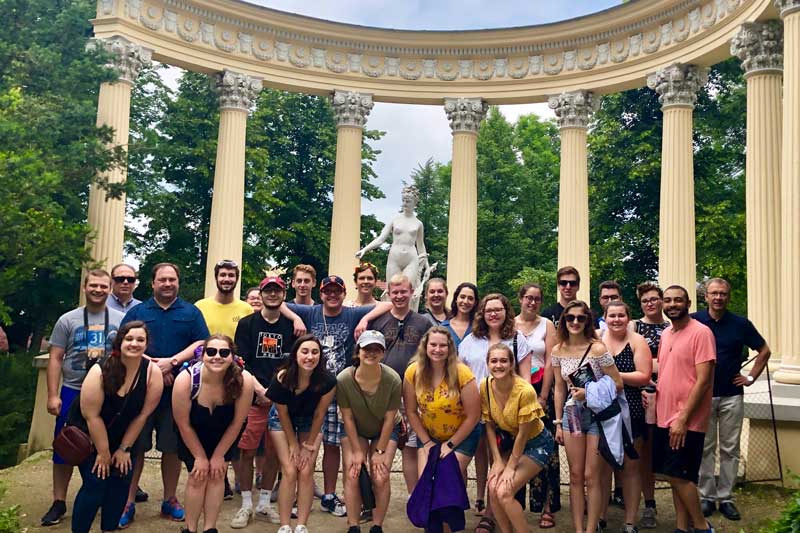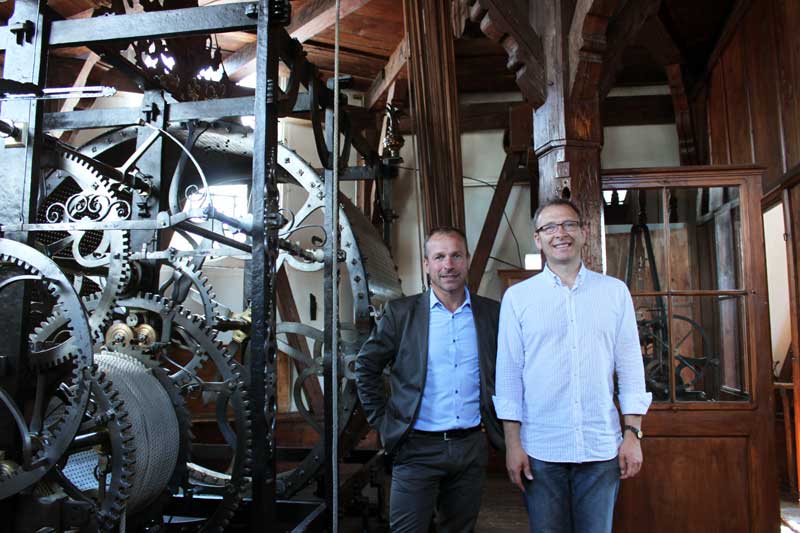The grammar and power of music
“As a professor of music history, I believe that musicians ought to hear music not only as a combination of melody, harmony, and rhythm, but as an expression of ideas that can be deduced from the sounds. In short, a musician should be able to not only understand the grammar of music, but also its rhetorical power. To reveal this power to the students is what I strive for in my teaching.”
How do you engage your students?
“As a scholar and teacher, I have embraced three distinct areas: classical music, jazz, and world music. In my classes, I constantly cross boundaries and explore multifaceted intersections among genres and styles. Revealing to my students global and interdisciplinary dimensions of music history has been a strong tenet of my teaching philosophy. My courses constantly evolve as I regularly revisit content, learning outcomes, and pedagogy. Incorporating current developments in respective fields and experimenting with novel ways to present the material allow me to reach my students in meaningful ways.”
“My success as a teacher lies mainly in my conscious application of strategies that engage students actively in the learning process. I design “pathways of discovery” that allow students to explore multiple ways of answering questions posed in the classroom. For instance, they may learn how the early Baroque composer Claudio Monteverdi invented the “agitated style” to expand music’s expressive range. My students go beyond this historical fact and trace the evolution of this style throughout different eras, ending with Miles Davis’s amazing piece titled “Agitation.” I often encourage my students to research how this expressive device functions in contemporary popular music.
I also try to blur boundaries between the classroom and real-life situations. In my course on Music Since 1900, students frequently take charge of their own learning. We stage a mock trial of avant-garde composer John Cage (moderated by a student judge in a robe). Students present pros and cons on the most radical developments in twentieth-century music, debating issues and learning from each other.”
The real flipped classroom
“My favorite teaching moments are those when students become the leaders of their learning process. I have named this approach the “real” flipped classroom. In this model, “flipping” the classroom means engaging students in hands-on projects to respond creatively to material they have learned in class. When students recompose a romantic art song, such as Schubert’s Elf King, using the styles of twentieth-century composers – Debussy, Stravinsky, or Schoenberg – I am frequently stunned by their ideas and creativity. Other projects may include inventing novel avant-garde sounds on their instruments; producing radio dramas; writing scripts for role playing; or group performances based on chance procedures such as tossing coins.”
Co-curricular projects
“My teaching frequently extends beyond the classroom. For my co-curricular project Mozart Sonata as Opera, I engaged two colleagues and a team of eight Nazareth students from the School of Music and the Dance Department. The nucleus of this project was a piano sonata by Mozart, which, while written for piano, actually depicts scenes from the world of opera. This interpretation is supported by research grounded in the so-called topic theory, a cutting-edge approach to music analysis that students explore in my music history classes. By transforming Mozart’s piece into a mini-opera, our collaborative performance revealed to the audience the ‘plot’ of the sonata in a full operatic production, staged at Nazareth University in 2017.”
Advising and mentoring
“Helping all students find their individualized career paths has been a very rewarding experience for me. From 2012-2022, I directed the Bachelor of Arts in Music program, which has become an entrepreneurial and interdisciplinary major where students can build their individual education paths. I also enjoy mentoring students who wish to present at College-wide CARS events or work with me on special research projects made possible by Nazareth’s research grants. My primary role as a mentor is to inspire students to become passionate researchers and critical thinkers so they can make meaningful contributions to their chosen field, the communities in which they live and work, and the world.
In my view, the key to successful mentoring is the creation of pathways through which students will travel and interact with artifacts, meet challenges, and solve problems. My own research agenda has offered multiple benefits to the students who wish to move across disciplines and develop an informed understanding of the complexity of culture and its roles in society. The multiplicity of approaches I use in my teaching has one ultimate goal: empowering our students for the pluralistic world of the future.”
International opportunities
“Since 2009, I have been developing international opportunities for both our students and faculty. In 2009, I initiated a short-term study program in Poland, which resulted in several reciprocal visits, guest faculty lectures, student exchanges, joint concerts, and community events in both partner cities. I have led four successful tours for Nazareth student choirs and chamber orchestras to Poland, where our students enjoyed professional performance opportunities and cultural immersion.
Most recently, Nazareth’s Chamber Singers won a Grand Prix at a choral festival, and previously they performed with the Rzeszów Philharmonic Orchestra and gave concerts at the Kraków Academy of Music. In addition to this very affordable short-term program, we offer long-term study opportunities at the University of Rzeszów for all majors.”

Nazareth Chamber Singers in Poland 2019
The Skalny Center
I collaborate with the Skalny Center for Polish and Central European Studies at the University of Rochester, organizing concerts, tributes, and masterclasses with international guest musicians and the annual Rochester Polish Film Festival. I participated in a panel discussion (video recording) with the director of a film titled Icarus: The Legend of Mietek Kosz, which is devoted to a little-known Polish jazz pianist and will be part of the 2021 festival.
Fun fact
“As a scholar, I view myself as a detective who tries to solve various musical puzzles or mysteries. I have personally compiled a list of several mysteries, but the tricky part is that each one can only be solved by examining specific musical artifacts located in various parts of the world. I recently solved one in Salzburg, Austria, where I needed to investigate a complex mechanism powering a Salzburg carillon installed on the historic tower of the Salzburg Museum. In 1831, the sounds of those bells piqued the interest of Fryderyk Chopin, who, having scrutinized the structure of the carillon up on the tower, composed a piece imitating those sounds. No one knows about this composition, but I was able to identify it, and my discovery will soon appear in print.”

Dr. Granat with chief curator Magister Peter Husty, examining the Salzburg carillon in Salzburg, Austria.
Courses taught
- Intro to Western Classical Music
- Intro to World Music
- Music Since 1900
- Jazz History
- Musical Styles and Expression
- Musical Borrowing
- Topics in Classical Era Music History
- Topics in Romantic Era Music History
- Music Research and Writing
- Music Analysis and Performance
Student view
"It is safe to say that I would not be where I am today if it were not for Dr. Granat. I came to Nazareth as an undecided student, but he was the first to recognize my passion for music and introduce me to the Music B.A. program. He helped me to realize that this program was not only fulfilling as a music major, but it also left flexibility to pursue other majors as well; I completed a B.A. in English simultaneously. Dr. Granat was always there to listen and advise me on how better to achieve my goals, whether personal, academic, or career oriented. His empathy, support, generosity, and commitment to his students are just some of his attributes that epitomize what an excellent professor and advisor should be."
– Alison Mack '20, student services associate, Eastman Community Music School
"Dr. Granat was a calming force and source of stability for me in a very emotionally-charged part of my life. For starters, an undergraduate degree in music is not easy, and contemplating career paths and a possible graduate career on top of all the duties that come with being a music student can be overwhelming. Having an advisor and professor as empathetic and student-focused as Dr. Granat was a brilliant resource in organizing and achieving my goals at Nazareth. His visible passion and excitement for music and making new discoveries is contagious, and the way he not only welcomes but encourages his students to share their findings and thoughts, too, is extremely meaningful. Dr. Granat's love for music history, as great and admirable as it is, is just slightly surpassed by his love of sharing/exchanging knowledge and seeking new ways to connect with his students. I am so grateful to have learned from and work with such a treasure."
— Alyssa Wlodarczyk '19, pursuing a master's degree in music history, Bowling Green State University
School of Music Responsibilities
- Music History